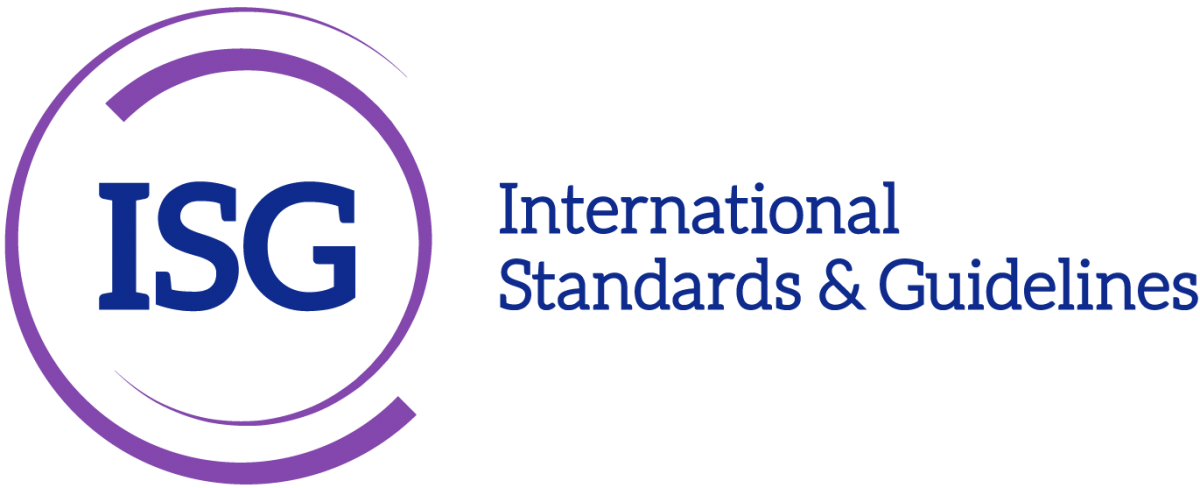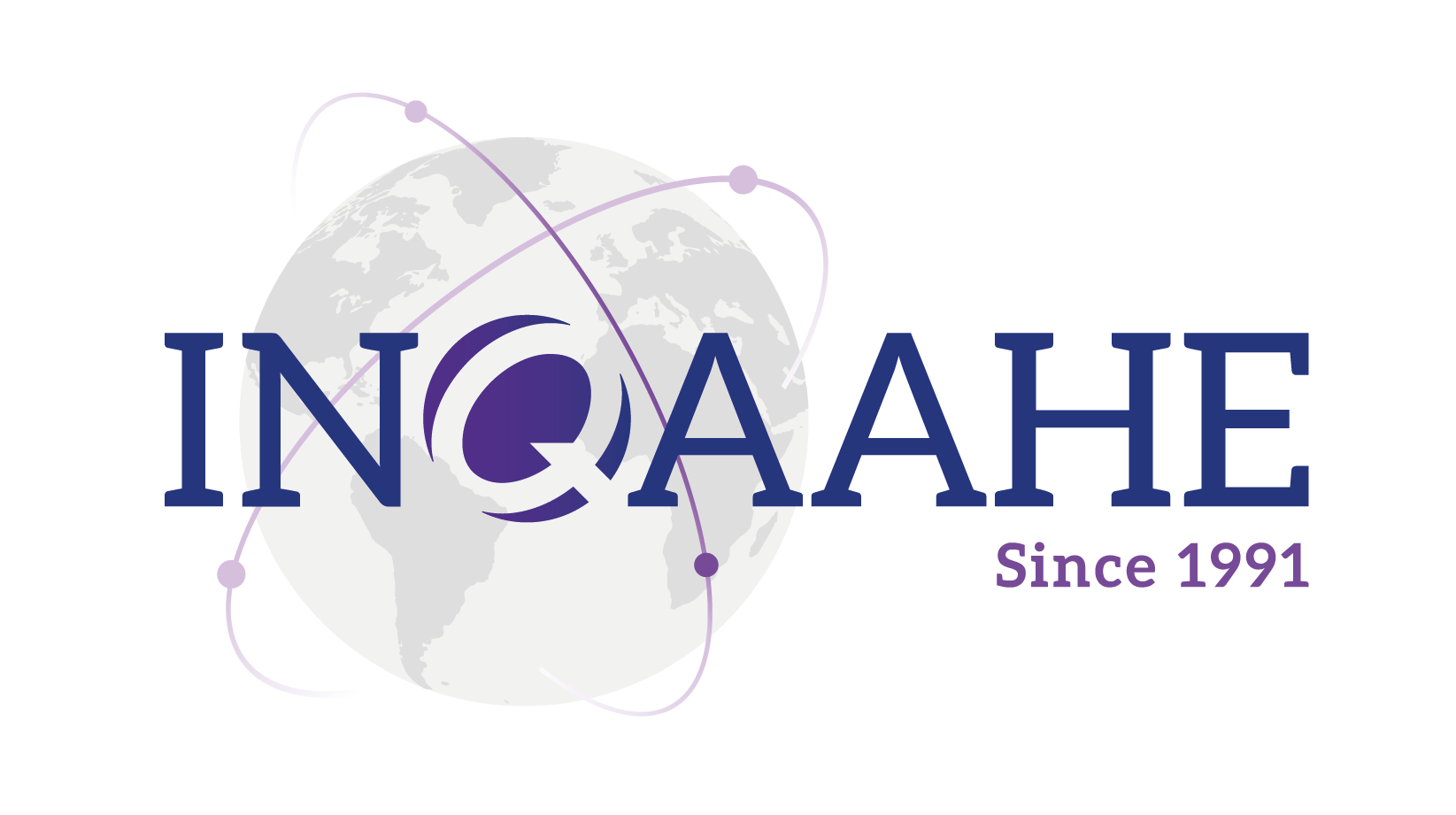International Standards and Guidelines for Quality Assurance in Tertiary Education (ISGs)
towards diversification, relevance, transformation, and recognition

The International Standards and Guidelines (ISGs) comprise global standards aimed at perpetually enhancing External Quality Assurance Providers (EQAPs) and upholding the quality of services they deliver to Tertiary Education Institutions and Programs. These standards play a pivotal role in promoting the relevance, trust, and credibility of quality assurance measures, while also facilitating the regional and global recognition of qualifications.
The transition from Guidelines of Good Practice (GGPs), in operation since the mid-2000, to ISG was imperative to adapt our framework to significant changes in Tertiary Education (TE) and Quality Assurance (QA). These changes include the necessity for a common language in quality assurance, the appropriateness of QA for an increasingly diverse and expanded tertiary education sector, the proliferation of types of EQAPs, and the interconnectedness of QA globally.
ISG has been designed to accommodate all types of EQAPs in various tertiary education contexts, providing ample flexibility to address the unique needs of EQAPs, especially in areas such as digital education, short learning programs, cross-border education, and cross-border QA.
Above all, ISG serves as a crucial instrument to ensure the credibility and impact of QA on TE, serving as a set of reference points for continuous quality improvement for all stakeholders involved in tertiary education.
Building upon over a decade of reviews against the GGPs, INQAAHE decided in 2022 to externally review EQAPs, whether members or not of INQAAHE, against the ISG.
The INQAAHE reviews offer three pathways for recognition of EQA bodies/accreditors:
- ISG Recognition: Full review by INQAAHE external reviewer panel.
- Recognition of Prior Review: Alignment with ISGs based on an external review conducted by another reputable organization.
- Joint Recognition Review: Review conducted by INQAAHE with a reputable organization.
In addition to the baseline standards, the ISGs provide three elective modules of standards tailored to an EQAP’s profile and mandate seeking external assessments in the areas of i) Cross-border education and cross border QA, ii) short learning programmes /micro-credentials, and iii) online/blended provisions.
Structure
The 2022 version of the ISGs is designed with a modular approach to enable appropriate recognition of diverse tertiary education endeavours and QA provisions based on their specific profiles including consideration of the enhancement continuum of EQAPs. Thus, the ISGs evolve around three major sections:
Section 1: Baseline standards relate to all quality assurance providers and accreditors regardless of their specific field of operations.
Section 2: Sets of thematic standards cater to specific profiles of EQAPs, enabling due recognition of the increasing diversity of tertiary education and QA providers.
Section 3: Guiding principles promote continuous enhancement of EQAPs.
Principles
The procedures are based on the following key principles:
- The review is an evidence-based process carried out by independent reviewers.
- The information provided by the EQAP is assumed to be factually correct unless evidence points to the contrary.
- The review is a process of verification of information provided in the SER and other documentation (including on site visit information), and the exploration of any matters which are omitted from that documentation.
- The review process is transparent, and reports are published on INQAAHE’s website (SAR and experts reports and other written production are not published. It is up to the EQAP to publish it SAR).
Fees
The overall fee for an external review (Recognition pathway) is distributed as per the following rates:
| BASELINE | 1 MODULE | 2 MODULES | 3 MODULES | |
|---|---|---|---|---|
| Panel Chair fee | 2,500 USD | 2,750 USD | 3,000 USD | 3,250 USD |
| Panel Secretary fee | 2,500 USD | 2,750 USD | 3,000 USD | 3,250 USD |
| Panel Expert fee | 2,000 USD | 2,250 USD | 2,500 USD | 2,750 USD |
| Project coordinator fee | 500 USD | 500 USD | 500 USD | 500 USD |
| INQAAHE administration fee | 8,000 USD | 8,000 USD | 8,000 USD | 8,000 USD |
| TOTAL | 15,500 USD | 16,250 USD | 17,000 USD | 17,750 USD |
In case of alignment through the Joint Review pathway, the fee structure will be set in the trilateral agreement. However, the same rates as outlined in the table above should be applied.
In case of alignment through the Recognition of Prior Review pathway against baseline standards is 3,500 USD. If an EQAP wishes to seek recognition for elective modules that fall outside the scope of the previous review, the following fee structure will apply:
- 500 USD for INQAAHE project coordination.
- 2,250 USD per expert. A minimum of two (2) experts is required per module.
More details regarding fees and the overall ISG alignment procedure are available in the Procedures Manual.
A series of activities such as webinars, trainings and panel discussion, as well as a presentation of the ISG as a knowledge product at the UNESCO WHEC 2022, were carried out to mark the the launch of the Standards and Guidelines during 2022 and 2023. Find out more on our website.


